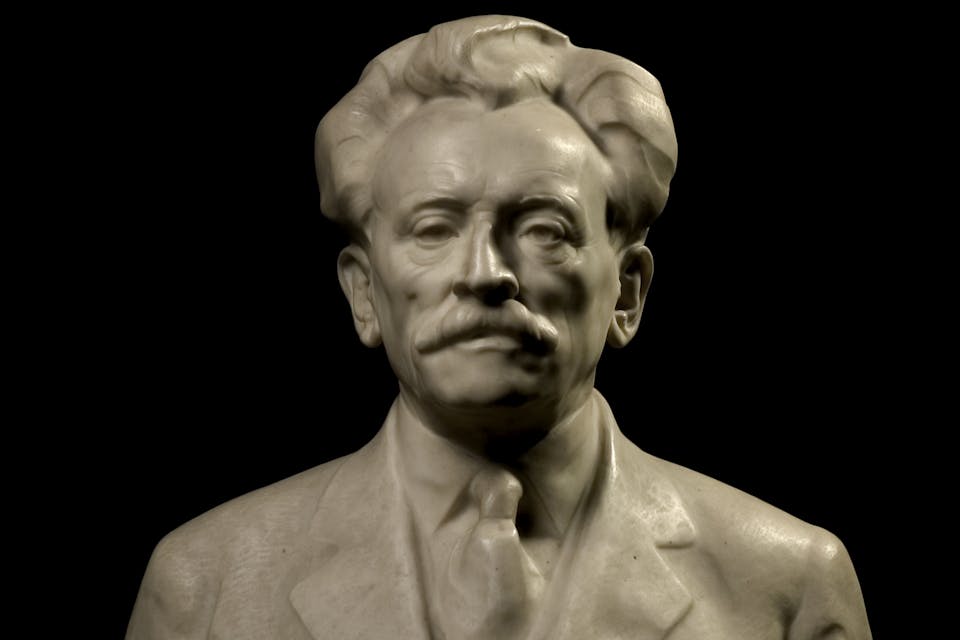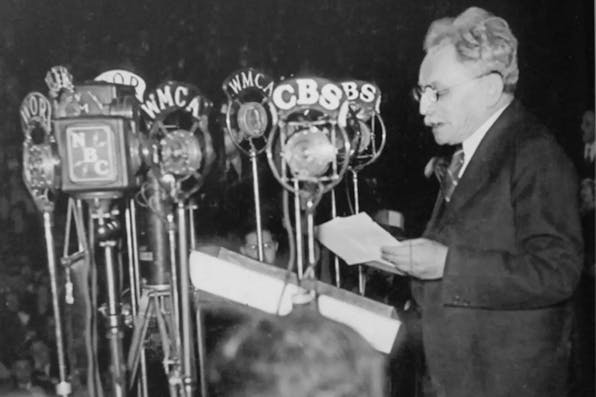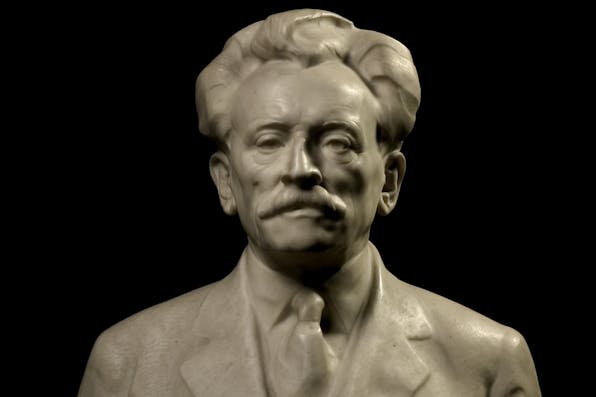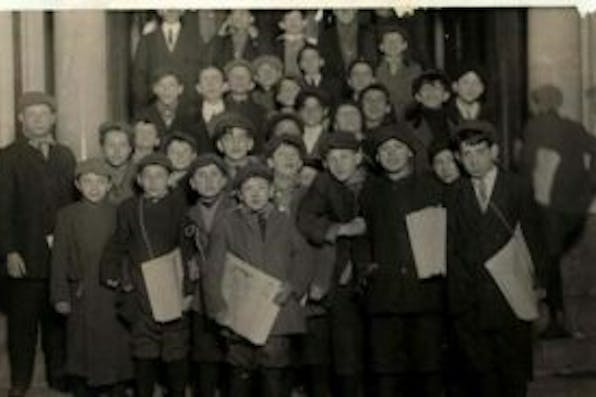
February 26, 2024
The Cold Litvak
In many ways, Abraham Cahan was a stereotypically rationalist Lithuanian Jew, able to rein in his emotions and do what he felt right.
I’m grateful to Ruth Wisse for her impressive essay on Abraham Cahan, and for bringing his legacy to a broader audience. Yet, in reading it, I found myself wondering how exactly one could prove her claim that Cahan was “the most [my emphasis] influential Jewish voice in America of the interwar years.” Even if that were the case, the question remains to what extent Cahan’s voice really was that of a visionary, an authority trying to transform the American Jewry for the better? Or rather if it would be better to describe him as an adroit person who had superb meteorological skills for detecting the winds of social change, and—immediately or belatedly—could recalibrate the message sent by him and the Forverts, which under his supreme editorship became a legendary successful Yiddish daily?
In 1901, Lenin explained how he saw the role of the party organ: “A newspaper is not only a collective propagandist and collective agitator, but also a collective organizer.” (Cahan found Lenin pleasant to talk to in 1912, and, in 1920, wrote that no praise could be too high for the Bolshevik leader’s historical deeds.) However, the Forverts, a newspaper of a socialist bent, was not an organ of an American socialist party or any other organization. At its founding, and for a long time thereafter, it followed the example of the German Social Democratic party and its own organ, the similarly titled Vorwärts. Hence the images of Karl Marx, Ferdinand Lassalle, and other European socialist luminaries depicted on the bas-reliefs of its 1912 building. Characteristically, the socialists who worked at the Forverts addressed each other as genose, from the German word for comrade—as opposed the Russian tovarishch or the Yiddish khaver.
The Forverts staff writers and contributors represented a medley of conflicting and shifting understandings of socialism. The veterans among them, including Cahan, were stuck in a no-man’s land between Marxism and the Haskalah, the Jewish Enlightenment that sought to educate and modernize East European Jews. The younger ones were Bundists, Mensheviks, and members of other socialist denominations, sometimes jumping from one to another. Several staff journalists and freelancers spent a stint in the Communist press, including Simon Weber, the Forverts editor from 1970 to 1987.


